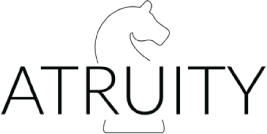Top Misconceptions When Implementing OKRs
If you have already started implementing OKRs or about to begin implementing OKRs – congratulations! The decision to implement OKRs is exciting and marks a new chapter for your organization. However, the implementation and execution of OKRs can be somewhat challenging and confusing at times as there are many misconceptions around OKRs and their usage.
Here are some of the most common misconceptions we see and how to avoid them in your OKR program:
1.OKRs Should Help Me Manage My People’s Time
In our podcast interview with Christina Wodtke (former Myspace, Zynga, Yahoo and LinkedIn Executive, lecturer at Stanford and author of the highly recommended book Radical Focus & Radical Focus 2.0), she states that the #1 misconception people have when implementing OKRs is that they use it as a tool to manage people’s time. She said that when she sees this frequently in companies, she coaches them on how to avoid the natural tendency to want to use OKRs as a time management tool.
Instead of pushing OKRs as a top down process, Christina recommends giving people the space and freedom to set their own goals. Christina states “OKRs really work for empowered teams”. Setting the top level company goals and letting people align their goals and figure out how to achieve these goals on their own is the best way to ensure buy-in at every level.
2. OKRs Will Help Me Track Everything The Company Needs To Do
Another common misconception around OKRs is that OKRs should capture everything a company needs to get done in a year or a quarter. However, this couldn’t be further from the truth and often creates confusion within organizations.
What differentiates Objectives and Key Results from other goal setting methodologies is that most OKRs will not track health metrics or KPIs and OKRs are not meant to capture “business as usual” tasks. While it is still necessary to keep an eye on these factors, your OKRs should be inspirational goals based on the premise of achieving your highest potential vs. tracking business as usual for an organization.
What OKRs do best is help to align and focus an organization and all of its employees on the most important things each person should aim to achieve, not everything that they need to do in their job role.
3. I Need Software To Implement OKRs Effectively
We want to be clear – we are fans of OKR Software. However, the most important thing about implementing OKRs is having a clear, well managed process that ensures buy-in and adoption. Think about the process’ around OKRs as a map and OKR software as a Ferrari. A Ferrari won’t help you get to your destination if you don’t have a map. Whether you’re choosing to start OKRs on pen and paper or in a Word document or Excel, how you do it is more important than what you do it on.
What people miss about OKR software is that each software is composed in different ways and allows different versatility. Using OKR software is very much like speaking in different languages; it can make you think in certain ways and limit creativity if you do not have a well defined process.
OKR Software can make a big difference in your OKR program after you’ve taken the time to implement OKRs properly and have had the time and experience to build up your own internal OKR culture and best practices. This sets the stage for OKR software success and helps to improve transparency, increase visibility and better align OKRs into company culture. At this point, you can choose what software best aligns with your own OKR process and framework.
4. I Don’t Need Help Running My OKR Program
One of the biggest mistakes people make when implementing OKRs is tying the success of the program to one individual. Most companies don’t allocate an individual who is qualified to solely work on the OKR implementation, often meaning that the responsibility for the success of the program is given to a person who splits their time between OKRs and other work. As an example, Barbara from accounting may have some free time, but is not the best person to manage the company’s OKR program.
Even when a company decides to hire someone specifically for an OKR program, it creates a huge risk. What happens to your program if this person leaves the company? This places the program in potential jeopardy and all of the time, energy and hard work that was put into the OKR program could possibly be wasted. This is when organizations lose program buy-in as the program is no longer being managed. The other primary issue is that the main center of knowledge gets lost as well and now no one is 100% sure of how to train or manage the OKR program.
This is one of the main reasons that 70% of OKR programs fail.
It is also why we recommend considering outsourcing your OKR program management. External program management ensures that success isn’t tied to an individual or that an OKR program is only prioritized when people have time. An external organization ensures that you always have someone managing your OKR program and that your organization stays well-trained and up to date on OKRs.
Additionally, through our unique Center of Excellence Program, OKR knowledge can be accessed at any time, ensuring consistent program knowledge throughout the organization vs. one individual’s interpretations of OKRs and how to manage an OKR program. This is incredibly important as we have proven successful OKR management practices that we know produce success and short/long-term results.
Even if you decide to eventually manage the program internally, using external help to start an OKR program can fast track success and get you up and running with a fully functioning and well-managed OKR program in 30 days or less.
If you are looking for external help with your OKR program, book a meeting with a member of our team and receive help today.
By Jeffrey Sweeney




